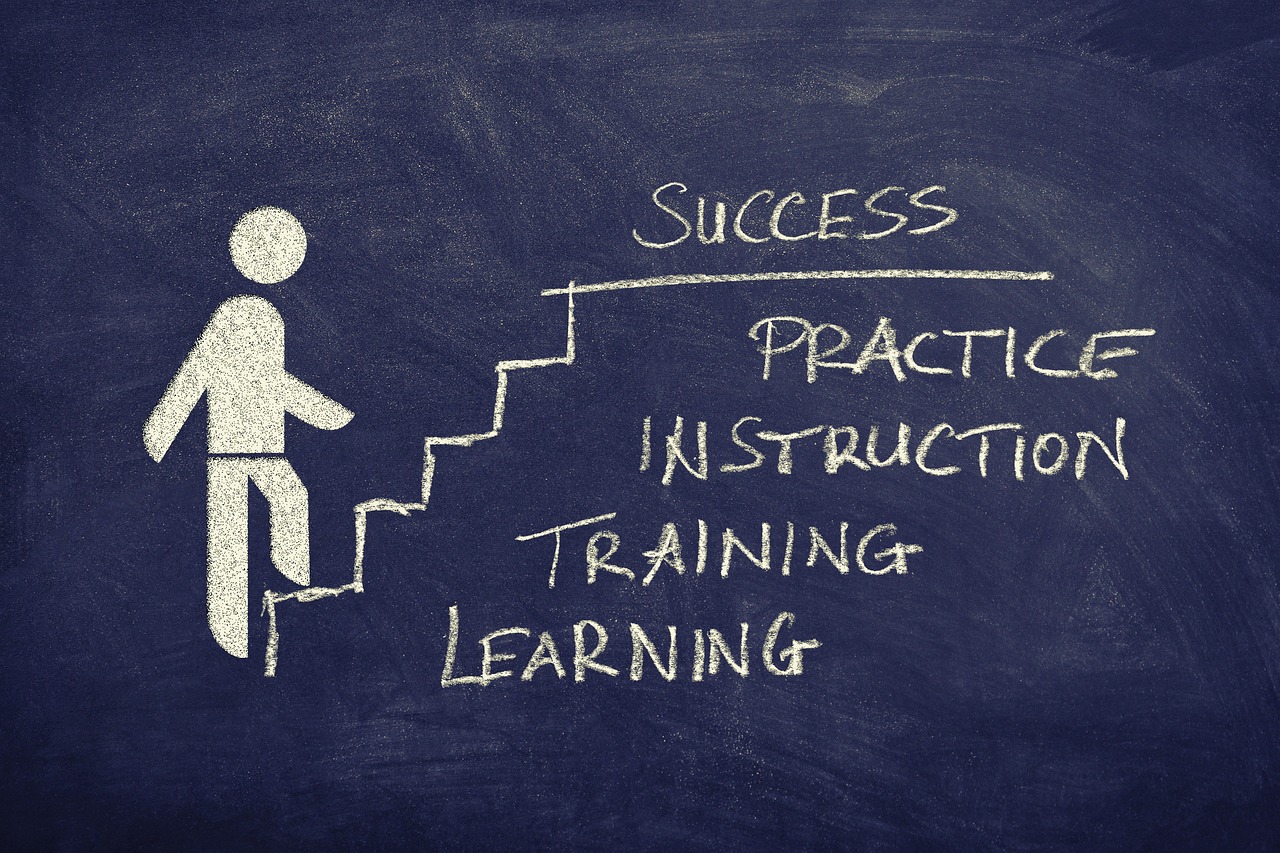Do you want to unlock your full potential and achieve maximum productivity every day? Look no further than the ultimate scientific daily routine. By incorporating these steps into your daily life, you can transform your mind, body, and spirit into a well-oiled machine that operates at peak performance. This routine will provide you with the energy, focus, and productivity you need to crush your goals and reach new heights of success. So let’s dive into the steps of this powerful routine and discover how you can supercharge your productivity.
Table of Contents
ToggleStep one: Wake up early
Importance of waking up early for Maximum Productivity
Waking up early is the first step towards a productive and successful day. It sets the tone for the rest of your day and allows you to start with a fresh and positive mindset. Early risers have been shown to be more proactive, productive, and better decision-makers throughout the day. By waking up early, you gain a sense of control and purpose that will carry you through the rest of your day.
Benefits of waking up early
There are numerous benefits to waking up early. Not only does it give you a head start on the day, but it also provides you with uninterrupted time to focus on yourself and your goals. By waking up early, you can engage in activities such as exercise, meditation, or reading, which contribute to your overall well-being and personal growth. Additionally, waking up early allows you to avoid the rush and stress of the morning commute, giving you a peaceful and calm start to your day.
Tips for waking up early
If you’re not accustomed to waking up early, it can be a challenge to make this change. However, with determination and these helpful tips, you can become an early riser:
- Gradually adjust your bedtime: Start by going to bed 15 minutes earlier each night until you reach your desired wake-up time.
- Create a bedtime routine: Establish a relaxing routine before bed to signal to your body that it’s time to sleep. This could include activities such as reading, listening to calming music, or practicing meditation.
- Use an alarm clock: Place your alarm clock across the room from your bed so that you have to physically get out of bed to turn it off. This will make it harder for you to hit the snooze button and tempt you to stay in bed.
- Avoid electronic devices before bed: The blue light emitted by electronic devices can interfere with your sleep. Try to avoid using electronic devices for at least an hour before bedtime to promote better sleep quality.
By following these tips and making a conscious effort to wake up early, you’ll soon reap the rewards of starting your day off on the right foot.
Step two: Fasting
The power of hunger for Maximum Productivity
Hunger is often looked at in a negative light, but it can actually be a powerful tool for Maximum Productivity. By fasting until you feel that you deserve to eat, you tap into the superpower of hunger and redirect its energy towards your goals. Rather than filling your belly before achieving anything, fasting allows you to utilize your hunger to increase your focus, drive, and productivity.
Benefits of fasting
Fasting offers numerous benefits beyond its productivity-boosting effects. It can enhance mental clarity, improve digestion, aid in weight loss, and even boost longevity. By giving your body a break from constant digestion, you allow it to focus on other essential processes, such as cellular repair and detoxification. Additionally, fasting has been shown to improve insulin sensitivity, which can help prevent chronic diseases such as diabetes.
Tips for fasting
If you’re new to fasting, it’s important to approach it with caution and seek guidance from a healthcare professional. Here are a few tips to help you get started:
- Start slow: Begin by fasting for short periods, such as 12-16 hours, and gradually increase the duration as your body adapts.
- Stay hydrated: Drink plenty of water during your fasting period to stay hydrated and curb hunger.
- Listen to your body: If you feel lightheaded, weak, or experience any health concerns, consider breaking your fast and seeking medical advice.
- Break your fast with nutritious foods: When it’s time to eat, opt for whole, nutrient-dense foods to provide your body with the nourishment it needs.
By incorporating fasting into your daily routine for maximum productivity, you can harness the power of hunger and unlock a new level of productivity and focus.
Step three: Blood flow
Importance of blood flow for Maximum Productivity
Maintaining proper blood flow is crucial for optimal health and cognitive function. When your blood flows smoothly and efficiently throughout your body, it ensures that every organ, including your brain, receives the oxygen and nutrients it needs to function at its best. Proper blood flow also aids in healing wounds, keeping your heart healthy, and maintaining overall well-being.
Activities to improve blood flow
Improving blood flow doesn’t have to be complicated or time-consuming. Incorporating simple activities into your daily routine can make a significant difference. Here are a few activities that can help improve blood flow:
- Exercise: Engaging in regular physical activity, such as walking, jogging, or cycling, can get your blood pumping and promote better circulation.
- Stretching: Taking breaks throughout the day to stretch your muscles can help improve blood flow and relieve tension.
- Deep breathing: Practicing deep breathing exercises, such as diaphragmatic breathing, can stimulate blood flow and relax your body.
- Cold showers: Alternating between hot and cold water during your shower can enhance circulation and invigorate your body.
Tips for maintaining proper circulation
To ensure optimal blood flow, make these habits a part of your daily routine:
- Move frequently: Avoid prolonged periods of sitting or standing in one position. Take short breaks every hour to move around and stretch your body.
- Stay hydrated: Proper hydration helps maintain blood volume and aids in circulation. Drink an adequate amount of water throughout the day.
- Avoid tight clothing: Tight clothing can restrict blood flow. Opt for loose and comfortable clothing that allows for proper circulation.
- Elevate your legs: If you spend a lot of time sitting or standing, consider elevating your legs to improve blood flow to your lower extremities.
By paying attention to your blood flow and incorporating these simple activities into your daily routine, you can optimize your circulation and support your overall health and well-being.
Step four: Nourish yourself
Importance of nourishment for Maximum Productivity
Nourishing your body and mind is essential for maintaining optimal physical and mental health. The food you consume plays a crucial role in providing your body with the necessary nutrients to function at its best. Similarly, engaging in mindful practices, such as reading, meditating, or practicing visualization, can nourish your mind and enhance your focus and productivity.
Mindful practices for mental nourishment
To nourish your mind, incorporate the following practices into your daily routine:
- Reading: Set aside dedicated time each day to read books that inspire and motivate you. Reading can expand your knowledge, stimulate your creativity, and improve your focus.
- Meditation: Practice meditation to calm your mind, reduce stress, and enhance your mental clarity. Even a few minutes of meditation each day can make a significant difference in your overall well-being.
- Visualization: Engage in visualization exercises to visualize your goals and intentions for the day. This practice helps sharpen your focus and align your actions with your desired outcomes.
Nutrition for optimal physical well-being
To nourish your body, prioritize a balanced and nutritious diet. Focus on consuming whole foods that are rich in protein, healthy fats, and complex carbohydrates. Opt for lean meats, fish, fruits, vegetables, whole grains, and legumes. Avoid processed foods, excessive sugar, and unhealthy fats, as they can negatively impact your physical and mental well-being.
By adopting mindful practices for mental nourishment and prioritizing nutrition, you can fuel your body and mind to perform at their best and achieve maximum productivity.
Step five: Plan and prioritize
Benefits of planning and prioritization for Maximum Productivity
Planning and prioritization are key elements of a productive daily routine. By planning your day ahead of time and prioritizing your tasks, you set yourself up for success and eliminate unnecessary decision-making. This allows you to focus your time and energy on the most important tasks, ensuring that they receive your full attention and effort.
Techniques for effective planning
To effectively plan your day, consider using the following techniques:
- Time blocking: Allocate specific time blocks for different tasks or activities throughout your day. This technique helps you stay organized and ensures that each task receives the attention it deserves.
- Prioritization matrix: Use a prioritization matrix to categorize your tasks based on their importance and urgency. This helps you identify which tasks need to be completed first and which can be addressed later.
- To-do lists: Make a to-do list for each day, outlining the tasks you need to accomplish. Break larger tasks into smaller, more manageable sub-tasks to make them feel less overwhelming.
- Calendar reminders: Set reminders or notifications on your calendar to keep you on track and remind you of upcoming deadlines or appointments.
Tips for prioritizing tasks
When prioritizing tasks, keep these tips in mind:
- Focus on the most important tasks: Identify a few high-priority tasks that will have the greatest impact on your goals. Give these tasks your highest attention and complete them first.
- Avoid multitasking: Multitasking can lead to decreased productivity and lower-quality work. Instead, focus on one task at a time to ensure that each task receives your full concentration.
- Learn to delegate: If possible, delegate tasks that can be done by others to free up your time for more critical responsibilities.
- Practice the 80/20 rule: The 80/20 rule, also known as the Pareto Principle, states that 80% of your results come from 20% of your efforts. Identify the most valuable 20% of tasks and prioritize them accordingly.
By implementing effective planning and prioritization techniques, you can make the most of your time and ensure that you focus on tasks that align with your goals and contribute to your overall success.
Step six: Sleep
The significance of quality sleep for Maximum Productivity
While waking up early is important, the quality of your sleep is equally crucial for Maximum Productivity. Instead of fixating solely on the time you wake up, prioritize the time you go to bed. Getting enough quality sleep is vital for your overall well-being and performance. It allows your body to rest, repair, and recharge, ensuring that you start each day feeling refreshed and energized.
Establishing a bedtime routine
To improve your sleep quality, create a relaxing bedtime routine. Establish habits that signal to your body that it’s time to wind down and prepare for sleep. Here are a few tips for establishing a bedtime routine:
- Set a consistent sleep schedule: Go to bed and wake up at the same time each day, even on weekends. This helps regulate your body’s internal clock and improves sleep quality.
- Create a sleep-friendly environment: Make your bedroom a quiet, dark, and comfortable space. Use blackout curtains, earplugs, or white noise machines to minimize distractions and create an optimal sleep environment.
- Avoid electronic devices before bed: The blue light emitted by electronic devices, such as smartphones and tablets, can interfere with your sleep. Turn off screens at least an hour before bed to promote better sleep quality.
- Relaxation techniques: Engage in relaxing activities before bed, such as reading a book, taking a warm bath, or practicing gentle stretching. These activities help to calm your mind and prepare your body for sleep.
Tips for improving sleep quality
In addition to establishing a bedtime routine, consider implementing these tips to improve your sleep quality:
- Limit caffeine and alcohol intake: Avoid consuming caffeine or alcohol close to bedtime, as they can disrupt your sleep patterns and quality.
- Create a sleep-friendly diet: Incorporate foods that promote sleep, such as foods rich in magnesium and tryptophan, into your diet. This includes foods like bananas, almonds, oats, and turkey.
- Exercise regularly: Regular physical activity can promote better sleep. However, avoid exercising close to bedtime, as it can increase your alertness and make it difficult to fall asleep.
- Manage stress levels: High levels of stress can interfere with sleep. Practice stress-management techniques, such as deep breathing, meditation, or journaling, to promote relaxation and improve sleep quality.
By prioritizing sleep and implementing strategies to improve sleep quality, you’ll enhance your overall well-being and maximize your daily productivity.
Conclusion
Incorporating the ultimate scientific daily routine into your life can have a transformative impact on your productivity, focus, and overall success. By following these steps—waking up early, fasting, maintaining proper blood flow, nourishing yourself, planning and prioritizing, and prioritizing quality sleep—you can unlock your full potential and achieve peak performance. Remember, success requires commitment and a willingness to adopt new habits. So take the leap, commit to this routine, and watch as your productivity soars to new heights. You have the power to become the best version of yourself and accomplish greatness. It’s time to make it happen!







